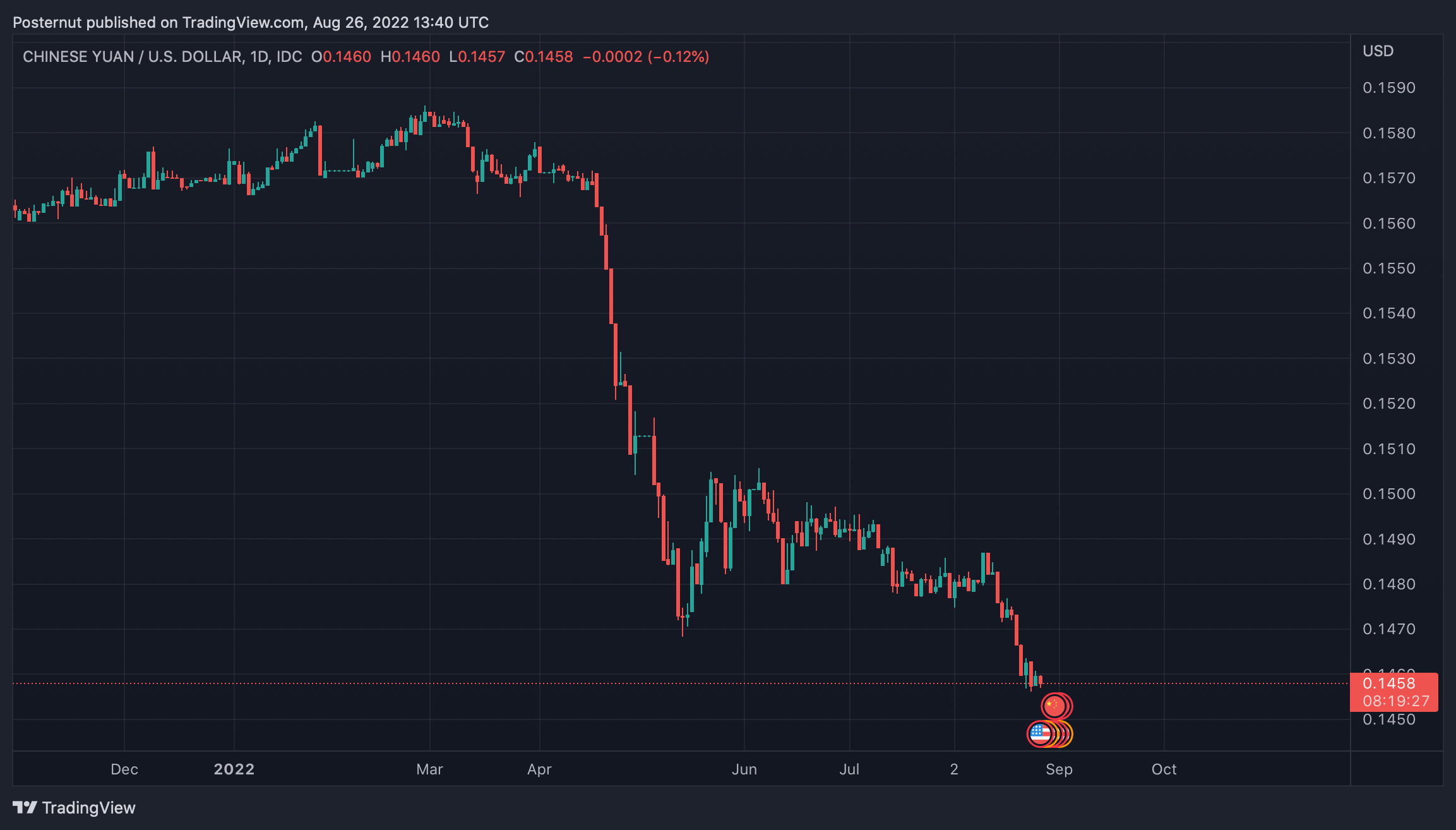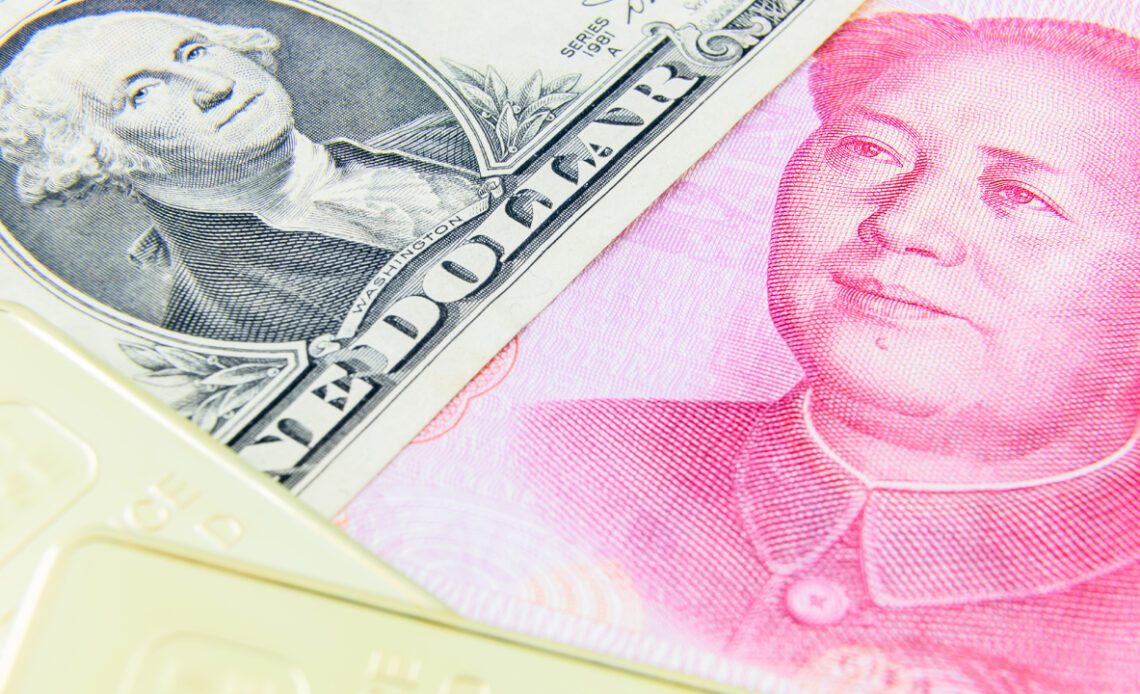China’s sovereign currency, the yuan, has slid significantly in value during the last few months as it has shed 8% against the U.S. dollar during the first half of 2022. China’s fiat currency is currently the weakest it has been against the U.S. dollar in roughly two years. Amid the depreciating yuan, China is suffering from a significant real estate crisis as the overextended Chinese housing sector has been collapsing.
China’s Yuan Slides to a 2-Year Low Against the US Dollar, PBOC Slashes Rates to Bolster Liquidity
The global economy is not looking great these days and cracks are starting to show in nearly every single country worldwide. This week while the U.S. dollar and Russian ruble remain robust, the Chinese yuan has been weak against the greenback and more so than it has been in two years. At the time of writing, the yuan is trading for 6.86 to the dollar, or levels not recorded since August 2020. Of course, the country’s central bank, the People’s Bank of China (PBOC), has tried to bolster the yuan and the Chinese economy.

Less than a week ago today, the PBOC lowered the country’s benchmark bank rate from 2.1% to 2%. Additionally, the PBOC slashed the one-year lending facility rate from 2.85% to 2.75%. At the time, the Chinese central bank explained the moves were made to “maintain reasonable and sufficient liquidity in the banking system.” China’s cabinet also published a new spending policy package, which aims to double infrastructure spending. The PBOC’s 2.1% to 2% rate cut was considered “bearish,” ING economists wrote in a note to investors after the central bank cut rates.
On August 22, the PBOC reduced specific lending rates again, as it trimmed the five-year loan prime rate to 4.30% from 4.45%. China’s central bank also revised the one-year prime rate to 3.65% from 3.70%. The same day, Atilla Widnell, a market analyst and managing director for Navigate Commodities, detailed in a note to investors that the central bank’s rate cuts the week prior did not see many positive reactions.
“Fresh monetary easing/stimulus was seen as futile as ‘flogging a dead horse,’ given that China’s economy desperately needs consumers back on the streets spending money,” Widnell wrote.
The Domino Effect of China’s Real Estate Issues, FX Watchdog Warns Several Chinese Banks Against Aggressively Selling Renminbi
China’s economic issues and the weak yuan stem from the…
Click Here to Read the Full Original Article at Bitcoin News…
























